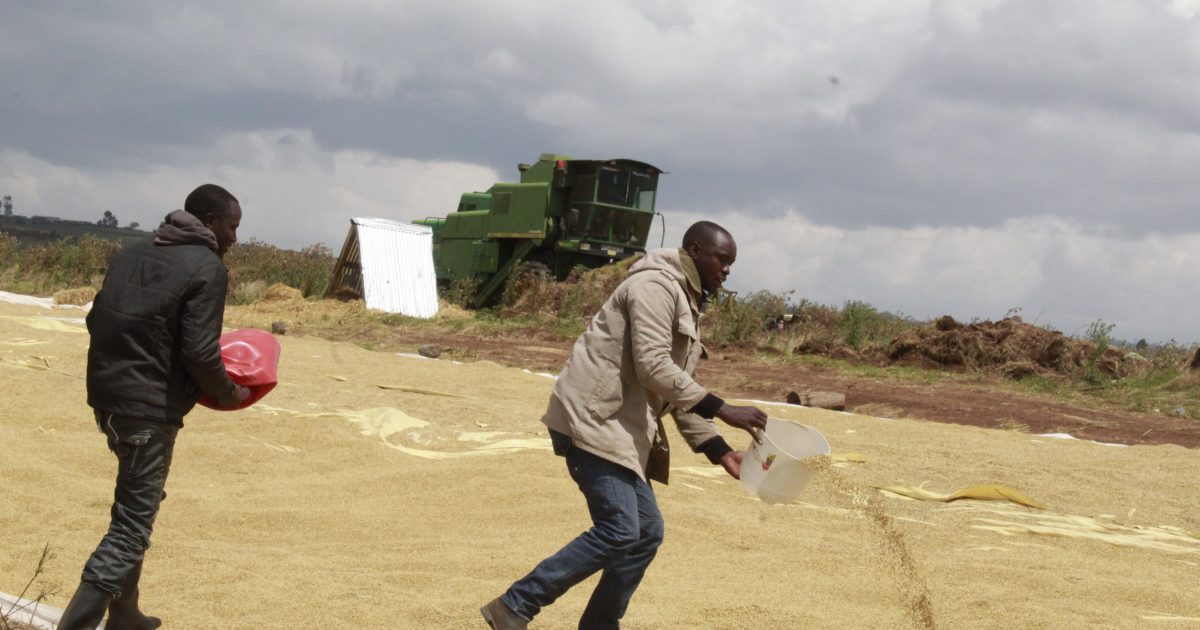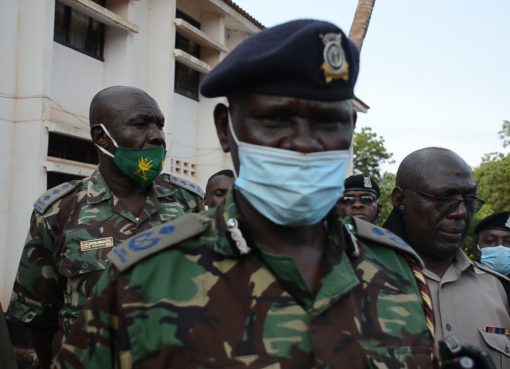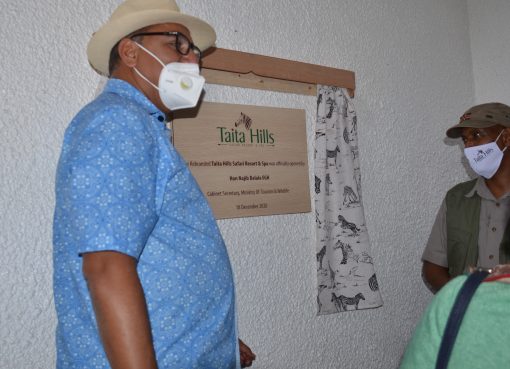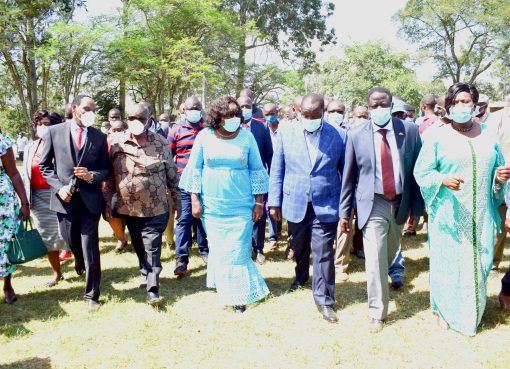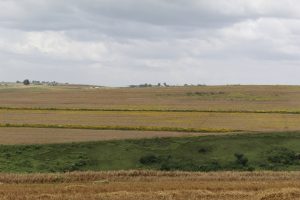
Rain comes as a blessing but when it falls for longer days than expected could cause more harm than good.
Wheat farmers in the upper and lower region of Narok North Sub County are now crying foul after a prolonged rainy period that has interfered with their planting and harvesting cycle.
While it is the season of harvest for those in the lower parts, the farmers in the upper section are expected to have prepared their lands ready for planting by now.
However, this has not been the case as explained by the farmers. Silas Yenko, a renowned wheat farmer at Olokruto Ward in Narok North Sub County that this year has been unique, as the rains have never stopped compared to previous years.
“We normally harvest in the Month of January to February, but this year, the rains have never stopped forcing us to incur huge losses as most of the wheat was destroyed before it was harvested,” said Yenko.
He said he had planted 10 acres of wheat and expected to harvest at least 18 bags (90 kgs) per acre but instead got only five bags per acre as most of the produce was destroyed by the heavy rains.
“The sale of the first 10 bags (90kgs) per acre is meant for the farm inputs that the farmer spent while the above bags are the farmer’s profit. In case an acre fails to produce 10 bags, then that is a total loss,” said Yenko.
Another farmer, Antony Muitent said the problem was compounded by lack of buyers who could access the area forcing most farmers to sell their produce to middlemen.
“Following the heavy rains, most of the roads became impassable hence the few buyers could not access the area making the middle-men to take advantage of exploiting the farmers,” Muitent said.
He observed that one 90 Kilograms bag was selling between Sh. 1200 to Sh. 1800, which is far less than the normal rates that are over Sh. 3000 per bag.
“Most buyers like Mombasa Millers and Kaigi Millers could not move to the grassroots because of the heavy rains making most farmers to sell their produce to middle men,” said Muitent.
The farmer called on the county government to consider building a factory in the wheat-rich region so that the farmers can sell their produce at a profit.
Lenoia Kelesi said many farmers had taken loans from financial institutions and were expected to pay as agreed wondering the next move to take after the low harvest.
“It is too expensive to plant even a single acre as every step one takes requires a lot of money. Preparing land for planting cost Sh. 3000, purchase of fertilizer Sh. 3000, two harrowing sessions each costing Sh. 2000 and hiring a planter that cost Sh. 4, 000 besides buying pesticides, insecticides and fungicides,” the farmer explained.
He lamented the subsidized Diammonium Phosphate (DAP) fertilizer given by the government last year did not yield much making them to go back to the shops to buy fertilizer from the retail shops.
“The subsidized fertilizer was selling at Sh. Sh. 1200 per bag while at retail a shop is Sh. 3, 000 per bag. Most farmers were forced to buy the fertilizer twice making it very expensive,” said Kelesi.
The Narok Wheat Growers Association Chairman, Stanley Koonyo said the wheat farmers in the upper parts who harvested their grains between July and August last year were to start preparing their land for this year’s season which normally starts in February but heavy rains have hampered them.
“It is worrying that the farmers in the lower region who harvested earlier and are supposed to have planted by now have not done it because of the ongoing rains,” said Koonyo.
He continued that in the month of January to February every year, the farmers normally have finished land preparation and planted but this has not happened this year expressing fear that the planting season could be pushed to April, which is risky.
The wheat farmers’ representative said due to heavy rains, the tractors expected to prepare the land keep off operations for fear of being stuck in the farm deepening the farmers’ woes.
The chairperson said on the lower parts of Enaibelbel, Olokruto and Naisoya in Narok North Sub County where they are now harvesting wheat and barley, the challenges remain the same as the grains go to waste in farm.
The farmers who make to the National Cereals and Produce Board (NCPB) face frustration over high moisture making them dig deeper into their pockets.
“We ask the department of agriculture to consider subsidizing the cost of drying grains in the NCPB depot as the current Sh. 24 per moisture unit was oppressive to the farmers,” said Koonyo.
He reiterated that for wheat to be bought at the NCPB, it requires minimum moisture of 14 per cent per 90 Kg bag,” said the prominent wheat farmer.
The Narok Chamber of Commerce Chairman, David Mbatiany asked the government to revive the stalled Eneng’etia NCPB depot in Narok North Sub County saying its revival will save farmers the cost of transporting their produce to Narok NCPB.
He said it was regrettable that the facility lies idle while the farmers are suffering transporting their produce to Narok town, which is over 100 Kilometres away with impassable roads.
In a recent farmer’s field day in the county, Governor Samuel Tunai called on value addition investors to end the wheat farmer’s woes.
The Governor revealed that 28 per cent arable land in the county was under wheat plantation, adding that the county was leading in wheat production in the country.
“We are the leading wheat producer in the country but should we have a processor within the county our farmers will be able to reap maximum income for their produce,” said Tunai.
By Ann Salaton


